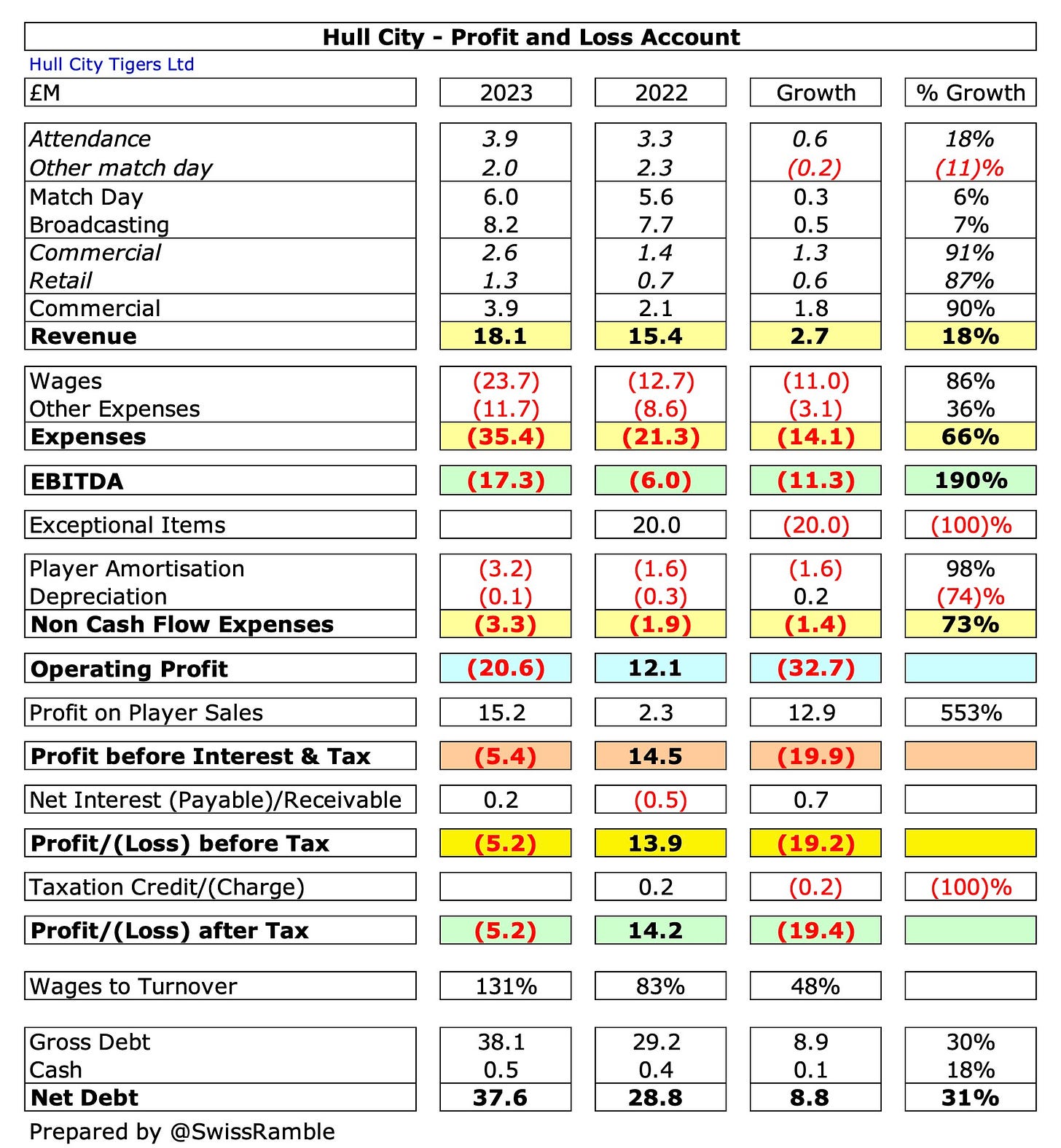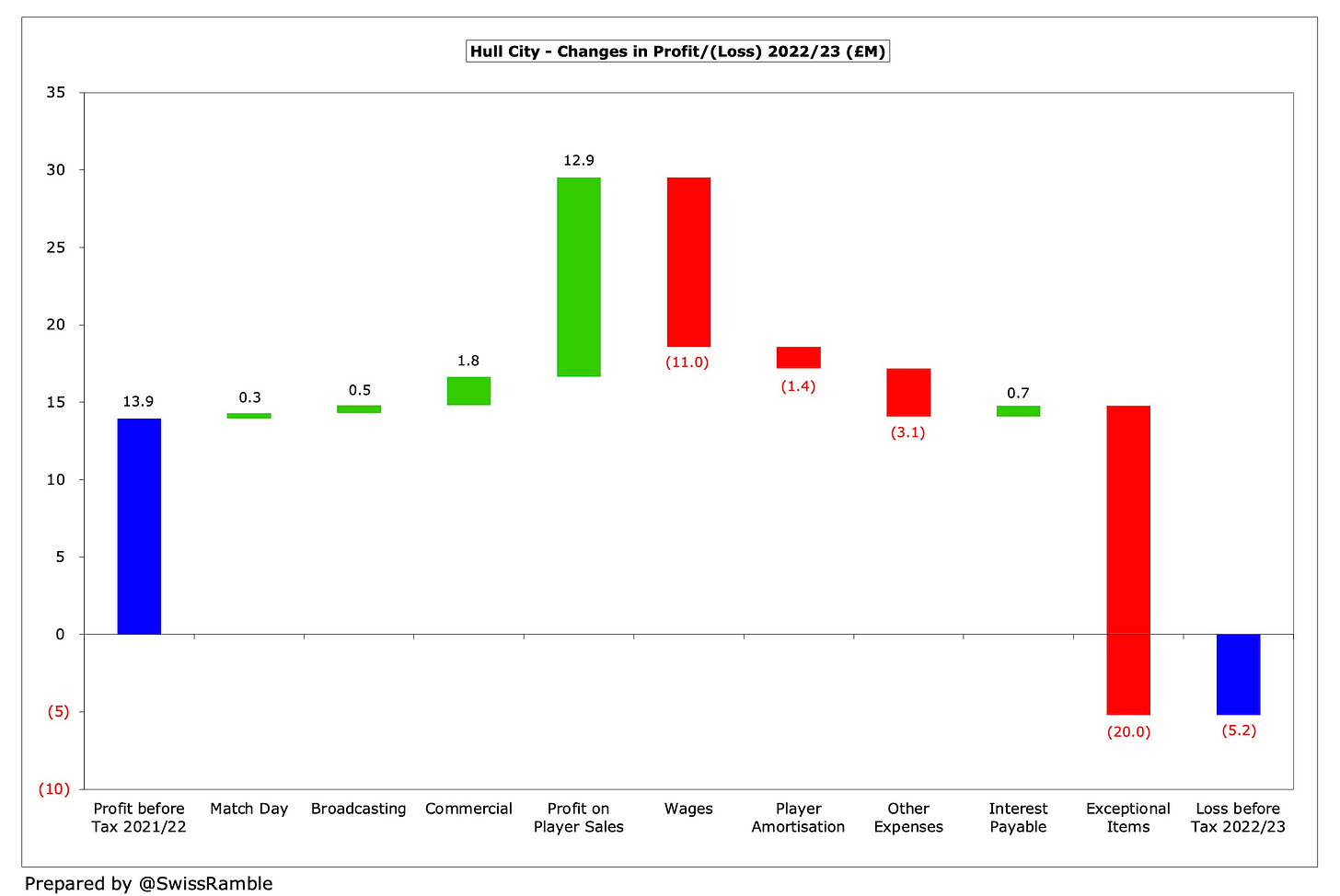Things have certainly changed at Hull City, since Acun Ilıcalı purchased the club from the Allamsvia his company Acun Media Group in January 2022. Since then, the Turkish businessman’s ambition has been evident and was again highlighted in the January transfer window, when City brought in no fewer than seven new players to strengthen the Tigers’ promotion bid.
They paid seven-figure sums to sign Abdülkadir Ömür from Trabzonspor and Ivor Pandur from Fortuna Sittard, while taking experienced striker Billy Sharp from Los Angeles Galaxy on a free transfer.
However, it was three of the four loan deals that really grabbed the attention, as these were from clubs in the Premier League: Fabio Carvalho from Liverpool, Anass Zaroury from Burnley and Ryan Giles from Luton Town.
Even though City’s outlay on permanent transfers in the January window was only around £4m, this was still one of the highest in the Championship, only bettered by Coventry City, Huddersfield Town and Stoke City.
Ownership
Ilıcalı would appear to have restored the club’s relationship with its fans after ending the Allams’ controversial regime. The former owners wryly observed that “There have been a lot of ups and downs over the last 11 years or so”, which was one way of putting it.
While the club reached the Premier League under their control, spending a total of three seasons in the top flight, they also dropped down to League One during their tenure.
Spending on the squad had effectively dried up, but the new owner is cut from a different cloth, so has been happy to put money into the club and splash the cash (relatively speaking).
When Ilıcalı made the acquisition, he said, “We are starting a beautiful journey with Hull City. We have many big dreams and goals to achieve together with our fans. I genuinely believe that we will achieve success with the amazing fans of this beautiful city.”
So let’s take a look at Hull City’s financial position in the first full season under the new ownership.
Profit/(Loss) 2022/23
Hull City finished 15th in the Championship in 2022/23, four places better than the previous season. Manager Shota Arveladze was dismissed in September 2022, replaced by Andy Dawson on an interim basis, before Liam Rosenior was appointed a few weeks later.
Hull City swung from a £13.9m pre-tax profit to a £5.2m loss, though this was entirely due to the previous season benefiting from a £20m write-down of a loan from the Allams following the sale of the club.
Otherwise, revenue rose £2.7m (18%) from £15.4m to £18.1m, though this was wiped out (and then some) by significant growth in operating expenses, which increased £15.4m (66%) to £38.7m, leading to a large £20.6m operating loss.
However, this was largely offset by £15.2m profit from player sales, up £12.9m from the prior year’s £2.3m.
After the loan write-off, net interest improved from £0.5m payable to £0.2m receivable.
All three revenue streams were higher, though the largest growth was in commercial, which nearly doubled from £2.1m to £3.9m. Broadcasting increased £0.5m (7%) from £7.7m to £8.2m, while match day was up £0.4m (6%) from £5.6m to £6.0m.
However, the cost of Hull’s renewed ambition was reflected in the wage bill, which shot up £11.0m (86%) from £12.7m to £23.7m, while player amortisation doubled from £1.6m to £3.2m. Other expenses increased by more than a third, rising £3.1m (50%) from £8.6m to £11.7m.
Keep reading with a 7-day free trial
Subscribe to The Swiss Ramble to keep reading this post and get 7 days of free access to the full post archives.







